
Using Schema & Knowledge Graph Signals for AI Visibility
To properly optimize for AI, it is essential to first understand how AI processes information. …
Keyword research is one of the basic parts of SEO (Search Engine Optimization). When doing keyword research, you should pay attention to the words you target and pay attention to their search volumes.
Keyword research is one of the processes that seem small but has a huge impact that will enable you to reach your goals more directly in all digital marketing areas you will do for your brand.
Especially if you want to be one of the top 10 websites on the SERP search result screen, you should do keyword research correctly and respond to user queries in a correct and original way. While content hierarchy is one of the elements that every brand should pay attention to, especially in e-commerce brands, the ‘focus keywords‘ in the product descriptions on the product pages will provide potential traffic to your site.
5 Steps to keyword research Before moving on to our article, we recommend that you read our article ‘SEO Strategies in E-commerce sites‘ and design your e-commerce website according to Google and other search engine standards.
Keywords are words used to introduce terms and emphasize important concepts in a text or document. We can say that the words that search engine bots coming to the site focus on to understand and make sense of the content in a short time. Keywords, together with bots, can bring our pages in front of users according to the user’s search intention.
Short or long-tail keywords typed into the search box present the sites that most closely match the query at the top. Therefore, while doing keyword research, you can divide the words into ‘word groups‘ and work according to information or commercial words.
As we always say in SEO, a user-oriented approach is our first priority. We need to give the user what they are looking for and show search engines that we can be included in the matching results. One of the best advice I can give you here is definitely ‘think like a user!’. Because even though we provide services in different fields, we use the relevant search engines quite a lot. Therefore, while doing the right keyword research; you can put yourself in the place of your target audience, answering questions such as ‘why would I buy my own product?‘ will increase your digital potential.
Keyword research is about finding the words you want to appear in search engines by understanding and analyzing how customers and users search. With keyword research, you can understand what users are looking for, analyze the content ranked in queries and develop the necessary strategies. Thanks to the competitor analysis you will do here, you can realize works that you can achieve longer-term results.
When doing keyword research, you can answer the following questions:
Knowing the answers to these questions will help you choose your strategies wisely.
Before doing any keyword research, you need to look at all the pages on your website. You can use tools such as Google Search Console, Semrush or Ahrefs to best observe the state of your pages or the words ranking on the page.
One of your priorities should definitely be to isolate critical pages that are of high importance to you. In this way, you will be able to identify the pages that you want to attract more users and target conversion and do keyword research on those pages.
Some pages where content and keyword usage are important on websites:
If you have a large website, you can create prioritized spreadsheets to keep track of which pages to improve. Also, if you have a blog content page, you can optimize old blogs instead of writing new ones.
Brainstorming is the foundation of the keyword research process. They define your field and help you identify your competitors. If you already have a product or service that you want to promote and sell online, it will be easier to identify keywords.
To understand how people search for your service, you can Google it and look for other results that match your product features. For example:

If we examine the suggestions at the bottom of the query screen in the upper image:
You can see the purpose for which users can query the first 4 suggestions on the word ‘TV Unit’ just like this.
In the brainstorming section, you can search for sub-words like this on your target word and choose the ones that are most relevant to your business or service.
When starting keyword research; you have examined your website and determined your own words. Now it is time to examine your competitors. This stage is important to see the competitors in the rankings you are targeting before your own word research.
Every brand wants to be on the first page and first place in certain queries. But in order to achieve this, you need to do a lot of work and prove the value of your brand to search engines.
You can use different tools to perform competitor analysis, and you can also examine the results quickly and free of charge with the simplest google query. For example:
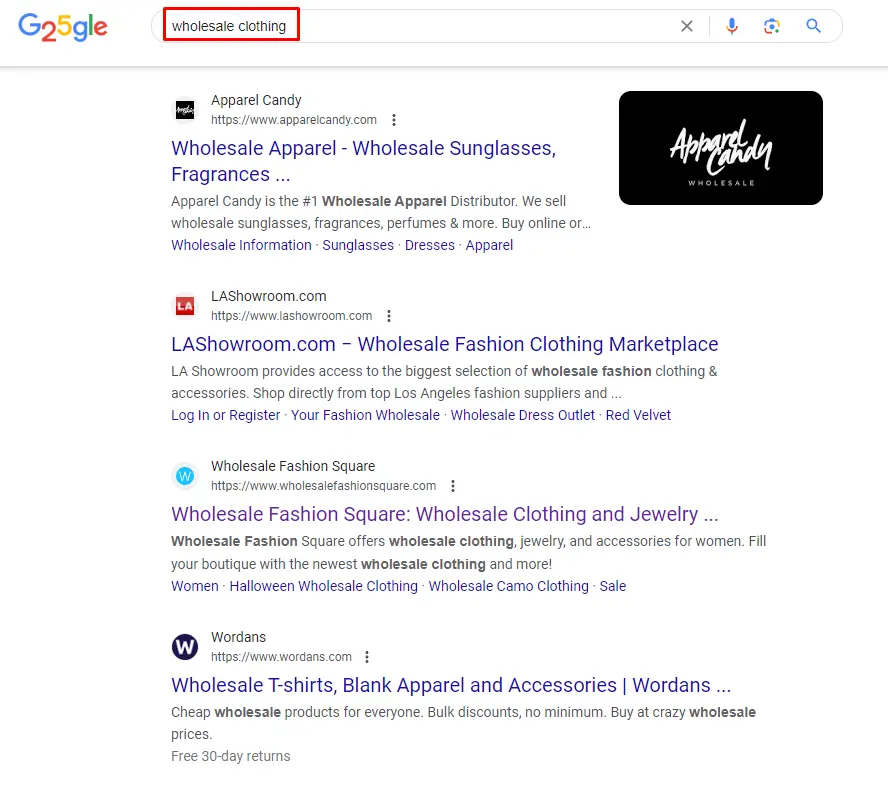
When we make a query targeting the word ‘wholesale clothing’, we encounter different wholesale clothing companies in the first 4 rows. After discovering the words you are targeting, examine the sites that rank high in your searches.
Do they have content? How is the content written? Which words did they use in the content? How are clickable headlines written? Analyze the answers to questions such as how they target user queries.
Take Advantage of Automation with Artificial Intelligence!
How can you use your time more efficiently? Artificial intelligence saves you time by automating repetitive tasks. Learn how you can leverage AI to accelerate your business processes.
While competitors can be a great source of keyword ideas, getting help from professional tools will give you even more insight. You can also discover words that your competitors are not targeting and examine the difficulty levels of the words you discover.
Here are free tools you can use keyword analysis:
Google Ads Keyword Planner may be the best platform where you can examine which keywords are searched more in queries on Google and when they are searched.
In addition to being free, it allows you to examine 10 different words or examine the traffic status of the words you specify.
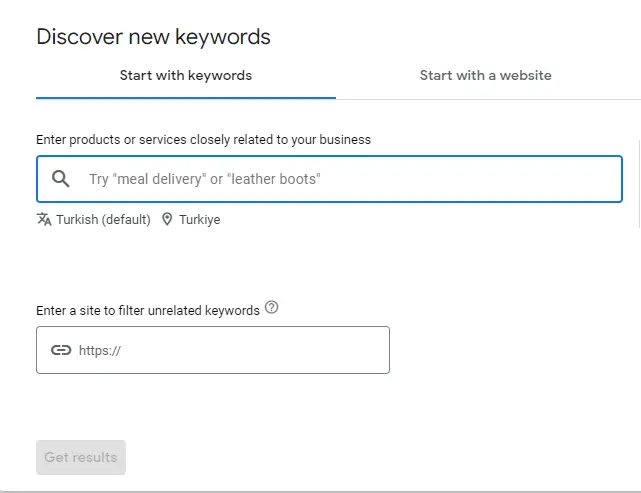
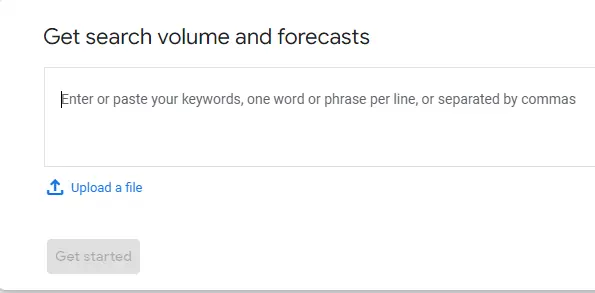
With an interface that makes it easy to find target keywords for your SEO efforts:
It provides groupings and conveniences such as. It can also suggest sub-word suggestions.
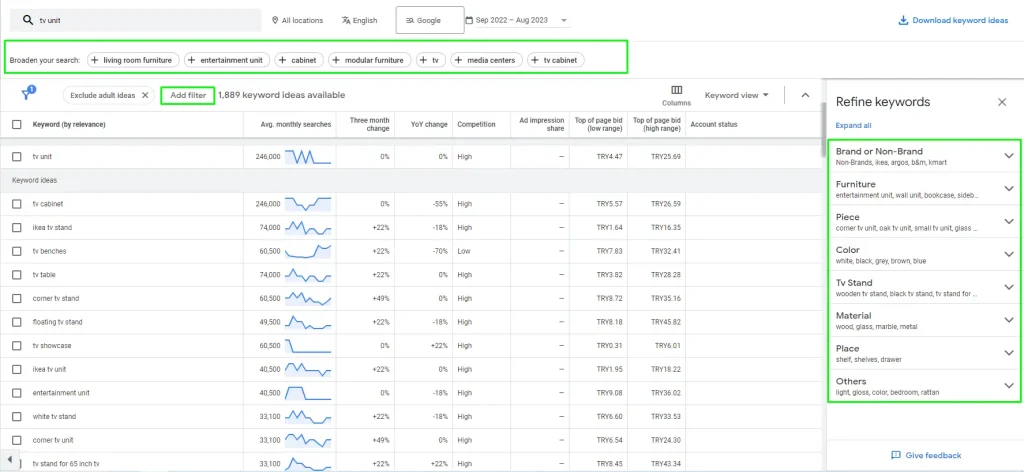
Ahrefs keyword tool is also very useful. It allows you to search by country or search engine. In this way, you can examine target country users and observe user behavior in different search engines.

Semrush is another one of the best tools for keyword research. Here again, you can search for keywords by language and location.

Is Your E-Commerce Website Raking in Traffic but No Leads/Sales?
Get a Free Conversion Analysis Audit now!
Let's evaluate together how you can capture the attention of your target audience more effectively. The goal is to increase conversion rates ! Fill out the form now and get your free analysis report!
Now that you’ve seen the metrics, you can get an idea of whether the usage of a keyword is good or not. Ideally, you should go for keywords that have a combination of the following:
Still, think about your target audience when searching for keywords.
While some keywords may seem meaningless to you in theory, you should take a good look at how users search and in which area they search. For example, if you provide services in a niche area, you should learn the different perspectives of users and put them into words and use them in your content. Otherwise, your product or service and keyword usage will not match.
Keyword research is essentially that easy! Although we have mentioned the important details above, in summary, you should set your goals well, examine your competitors and follow the seasons.
Only in this way can you achieve success in the digital world and bring your business to more audiences.
Get an Offer


Join Us So You Don't
Miss Out on Digital Marketing News!
Join the Digipeak Newsletter.
Related Posts

To properly optimize for AI, it is essential to first understand how AI processes information. …
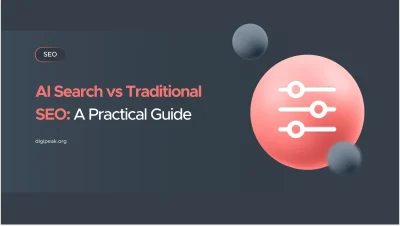
If you're reading this, you've witnessed a fundamental change in how the world finds information. …

The fashion world is always moving fast. But today, the biggest runway isn't in a …

In a world where digital trends change in a blink, you need a partner who …